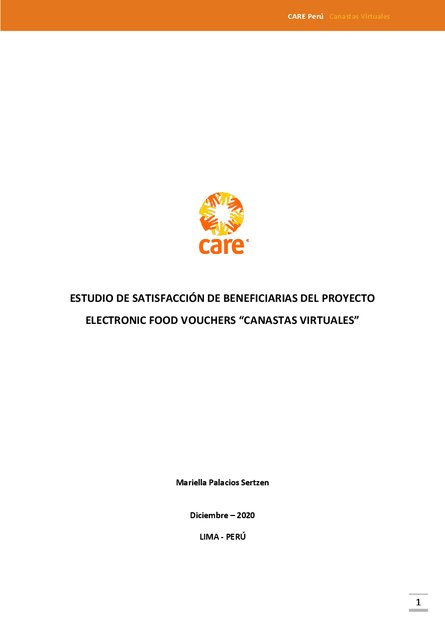
On March 15, 2020, after declaring the WHO as a Coronavirus (COVID19) pandemic, the Peruvian State declared a State of National Emergency and the start of a quarantine. Although the government measures implemented initially contained the spread of the infection, they had a negative impact on the quality of life of families living in poverty and extreme poverty (20.5% according to INP 2018) and the support and subsidy programs generated by the government, they were not enough. The quarantine period exacerbated the precarious situation of a highly informal Peruvian economy, a weak health system and evidenced the limitations of access that families had to virtual media. In this context, CARE Peru understands that these impacts have a greater impact on women and girls, and among others, small entrepreneurs, such as winery owners. There are around 500,000 wineries in the country and more than 60% are started by women, these wineries have presented a drop of more than 50% in their sales. In this sense, CARE Peru designed an innovative double impact intervention, which considered addressing families in vulnerable situations and contributing to the reactivation of warehouses in the localities where they reside, applying mechanisms that involve the use of technology.
The project was called “Electronic food vouchers for coping with new challenges”, financed by the Coca Cola Foundation, known as “Coca Cola virtual baskets”, which was implemented between May and October 2020 and aimed to benefit 800 families in Lima , Junín, Arequipa and Piura, through the delivery of a kitCARE (family basket of nutritional food products) for three opportunities (more than 3,500 baskets), acquired in a winery through a virtual platform, which operated as a payment gateway, for more than 70% of the beneficiaries, the other group of 30% used another means.
